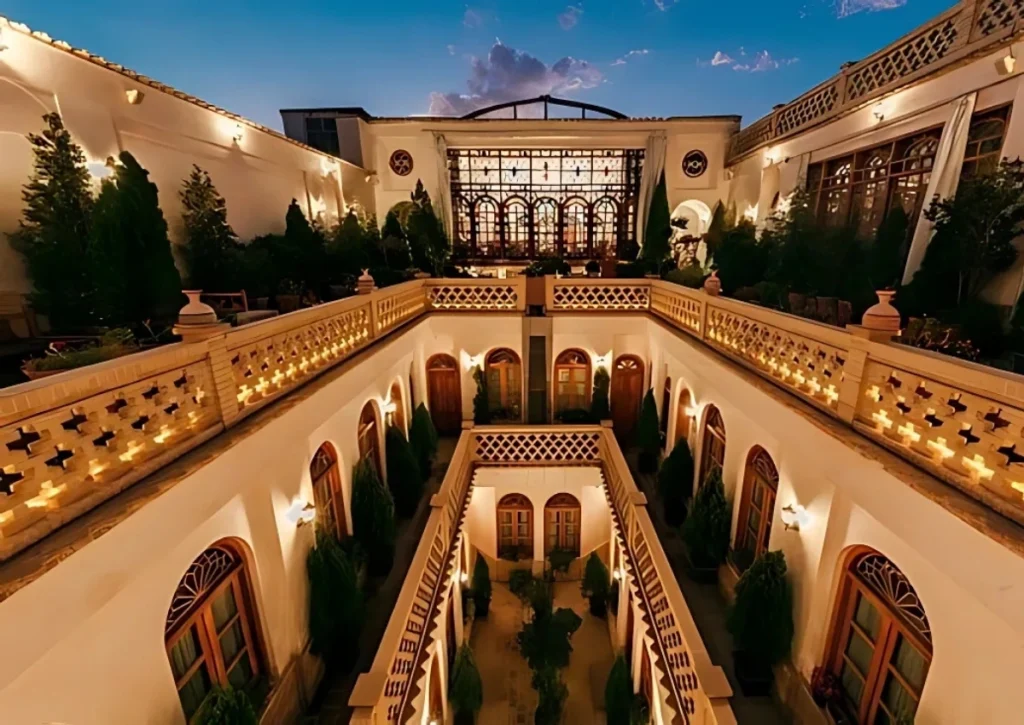The hospitality sector has seen a phenomenal change over the last couple of years, with the rise of the so-called boutique hotels becoming the champions of the individualized guest experience. Days when passengers were satisfied with conformity accommodations and copycat services are gone.
The modern, demanding customers are looking to experience the genuine, memorable and unique moments that match their own personal taste and engagement.
Know about Boutique Hotel Revolution
Boutique Hotels are not just smaller hotels with a different form of decoration. These institutions have essentially changed the definition of hospitality in the 21st century. Boutique hotels also tend to be smaller (between 10-100 rooms) as opposed to their larger chain counterparts, which means intimate settings in which the interactions with every guest count.

The idea was developed in the 1980s when innovative hoteliers realized that guests were in search of unique experiences rather than predictable consistency. Boutique properties are now setting the premium rates and commanding loyalty; what began as a niche market has now become a presence and can compete with the traditional hotels.
These properties are unique with design features that are well selected and make a story. Boutique hotels may be located in repurposed historical locations, modern-day architectural wonders, or buildings that integrate into the cultural heritage of the surrounding community, but regardless, they do so in a way that immerses the customer in an environment that they will never forget.
The Personalization Imperative in Modern Hospitality
Personalization has become the cornerstone of exceptional hospitality, driven by changing consumer expectations and technological capabilities. Modern travelers arrive with sophisticated demands, expecting services tailored to their specific preferences, dietary requirements, and lifestyle choices.
This shift represents a fundamental change in how hotels approach guest relationships. Rather than treating visitors as room numbers, successful boutique properties invest in understanding individual guest profiles, preferences, and behaviors.
This deep knowledge enables them to anticipate needs, customize experiences, and create moments of surprise and delight that transform ordinary stays into extraordinary memories.
The personalization trend extends beyond simple gestures like remembering guest names or preferred room temperatures. Today’s boutique hotels leverage data analytics, guest feedback, and staff observations to create comprehensive guest profiles that inform every interaction.
From pre-arrival communications to post-departure follow-ups, every touchpoint becomes an opportunity to demonstrate understanding and care.
Technology Enabling Authentic Human Connections
However, against the fears that technology may depersonalize hospitality, creative boutique hotels have found ways through which digital tools can complement and not eliminate human relationships. Property management systems have also begun to monitor preferences of guests in multiple stays and thus staff will be able to offer seamless and personalized services without the guests having to communicate their needs repeatedly.
Mobile applications enable guests to interact in real-time with hotel employees, order services and tailor their hotel stay. Smart room technology also personalizes the lighting, temperature and entertainment to a particular person, and keyless entry systems can make things convenient without losing security.
Nevertheless, the most successful boutique properties know technology should be unobtrusive to the guest experience and only serve as an aide but not a master. The idea is to liberate the staff members with the help of these tools so that they can concentrate on meaningful interactions and innovative problem-solving as opposed to the administrative side of things.
Local Culture Integration and Authentic Experiences
Boutique hotels have perfected the art of helping the guest to experience local culture in ways that can not be easily matched with the chain properties. These venues can be viewed as cultural ambassadors, they open up the visitors to the gems of a neighborhood, to local artisans and secret experiences that aren’t usually mentioned in guidebooks.

Most boutique properties work together with the local businesses, including regional artwork, teaming with local restaurants to have special dining experiences and provide curated activities that reflect the true nature of the chosen spot. This strategy has the following advantages: guests who want to experience the culture of the local people and local people who would have economic opportunities due to tourism.
The integration goes beyond surface-level decorative touches to encompass meaningful partnerships that support local economies while providing guests with insider access to authentic experiences.
Whether through cooking classes with neighborhood chefs, guided tours by local historians, or art workshops with regional craftspeople, boutique hotels create connections that extend far beyond the property boundaries.
Design Philosophy and Atmospheric Storytelling
Aestheticism The design philosophy of boutique hotels goes well beyond the aesthetics to include atmospheric storytelling appealing to all senses. The properties narrate a different story with a clear choice of furnishings, lights, artwork and architectural elements that are strong components that bring together cohesive experiences in the character of the destination or the conceptual theme of the hotel.
Such concern with environmental narration implies that a guest is transported to various worlds, whether by entering a refurbished monastery that preserves its spiritual calmness, an artistic property that highlights a newfound local talent, or a design-oriented space that glorifies modern-day creativity.
State-of-the-art boutique hotels know that even a single design item leads to the total guest experience. As displayed by the fabric quality, odors in communal spaces, choice of background music, and use of lighting devices, these features produce an immersive setting that attracts the guests and motivates them to stay longer and return.
Culinary Excellence and Gastronomic Adventures
Food and beverage has become a key part of the value proposition of leading hotels and many properties have become known as much because of their food as despite the accommodation. Such hotels have new restaurants usually run by highly skilled chefs who make menus that honor local products and cuisines along with the use of modern methods and international trends.
The dining experience extends beyond restaurant meals to encompass everything from artisanal coffee programs and craft cocktail menus to in-room dining presentations that rival fine restaurants. Many boutique properties offer cooking classes, wine tastings, and food tours that provide guests with a deeper understanding of local culinary culture.
This focus on gastronomic excellence serves multiple purposes, attracting food enthusiasts who might not otherwise visit the destination while creating additional revenue streams and establishing the property as a local dining destination that benefits the broader community.
Staff Training and Service Excellence
The success of boutique hotels relies heavily on staff members who understand the property’s unique character and can deliver personalized service that exceeds guest expectations. This requires comprehensive training programs that go beyond standard hospitality protocols to encompass the hotel’s specific brand identity, local culture, and guest relationship philosophy.
Staff empowerment is crucial in boutique environments, where front-line employees must make real-time decisions to enhance guest experiences. This means hiring individuals who demonstrate genuine hospitality instincts and providing them with authority to resolve issues creatively and immediately.
The intimate scale of boutique properties allows for closer relationships between staff and management, creating work environments where employees feel valued and motivated to contribute to guest satisfaction. This positive workplace culture translates directly into better guest experiences and higher service quality.
Market Positioning and Competitive Advantages
Boutique hotels have carved out distinctive market positions by focusing on experiences rather than amenities, relationships rather than transactions, and authenticity rather than standardization. This positioning allows them to command premium pricing while maintaining high occupancy rates and generating strong guest loyalty.

The competitive advantages extend beyond immediate financial metrics to encompass brand differentiation that large chains struggle to replicate. While major hotel companies attempt to create boutique-style sub-brands, independent properties maintain authenticity advantages that resonate with guests seeking genuine, unique experiences.
These properties also benefit from operational flexibility that allows rapid adaptation to changing market conditions and guest preferences. Without corporate bureaucracy constraining decision-making, boutique hotels can implement innovations quickly and respond to guest feedback with immediate action.
Future Trends and Industry Evolution
The boutique hotel sector continues evolving as guest expectations advance and new technologies emerge. Sustainability has become increasingly important, with eco-conscious travelers seeking properties that demonstrate environmental responsibility through renewable energy, waste reduction, local sourcing, and community support initiatives.
Wellness integration represents another growing trend, with boutique hotels incorporating spa services, fitness programs, healthy dining options, and mindfulness activities that support guest wellbeing beyond traditional hospitality services.
The rise of extended-stay travelers, particularly remote workers seeking inspiring environments, has prompted many boutique properties to adapt their offerings with enhanced connectivity, collaborative spaces, and packages designed for longer visits.
Final thoughts
The rise of boutique hotels and personalized experiences represents a fundamental shift in hospitality that shows no signs of slowing. As travelers increasingly value authenticity, personal connection, and memorable experiences over standardized service and predictable amenities, boutique properties are well-positioned to lead industry innovation.
Success in this sector requires more than simply operating a small, stylish hotel. It demands genuine commitment to understanding and exceeding guest expectations, creating authentic connections with local culture, and maintaining service excellence that justifies premium positioning.
Also check:- The Importance of Sports in Student Life
For hospitality professionals and property investors, the boutique hotel sector offers opportunities to create distinctive businesses that generate both financial returns and meaningful guest relationships.
As the industry continues evolving, those who embrace personalization, authenticity, and experiential hospitality will find themselves at the forefront of hospitality’s exciting future.




